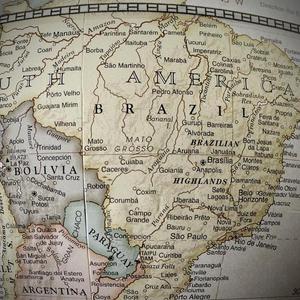Brazil ups biodiesel mandate to 7 percent starting November

June 2, 2014
BY Ron Kotrba
On May 28 Brazil’s President Dilma Rousseff signed an increase in the nation’s biodiesel mandate, starting in July from 5 to 6 percent, and moving to 7 percent in November, according to Brazil’s Ministry of Mines and Energy. The measure, which will be sent to Congress, was signed during an event at the Presidential Palace.
“We went from a situation in which, on the scale of countries producing biodiesel, we did not exist, to become today third in the world,” Rousseff said.
Advertisement
Advertisement
Minister Edison Lobao said the move will allow full use of Brazil’s biodiesel production capacity and benefit family farmers with income generation. He also cited the environmental gains. Brazil currently has 57 plants able to process about 7.5 billion liters (approximately 1.98 billion gallons) of biodiesel annually.
“The increase in this percentage is perfectly integrated to the Brazilian policy of energy diversification, with emphasis on renewable and clean energy,” Lobao said. “This expansion will enable reduction in the emission of 23 million tons of carbon dioxide by 2020, putting Brazil in the best goals that pledged before the UN.”
According to Lobao, the increase to 7 percent biodiesel in Brazil will reduce diesel imports by 1.2 billion liters (317 million gallons) a year.
Advertisement
Advertisement
“This decision is a gesture of the government reflected in all areas such as health, employment generation, the GDP [Gross Domestic Product] and virtually no reflections on inflation,” said the president of the Sectorial Chamber Biodiesel, Odacir Klein. “We were anxious.”
The National Biodiesel Program instituted a 2 percent biodiesel mandate in 2008, and in 2010 it rose to 5 percent where it has stayed. Lobao said each percentage point increase in biodiesel prevents importation of approximately 600 million liters (158.4 million gallons) of diesel fuel per year, which, at current prices, represents a direct savings of nearly $500 million.
Related Stories
The European Commission on July 18 announced its investigation into biodiesel imports from China is now complete and did not confirm the existence of fraud. The commission will take action, however, to address some systemic weaknesses it identified.
Kintetsu World Express Inc. has signed an additional agreement with Hong Kong, China-based Cathay Pacific Airways for the use of sustainable aviation fuel (SAF). The agreement expands a three-year partnership between the two companies.
On July 18, U.S. EPA announced a reduction in force (RIF) as the agency continues its comprehensive restructuring efforts. With organizational improvements, EPA is delivering $748.8 million in savings.
Broco Energy on July 17 announced a new partnership with the Massachusetts Port Authority (Massport) to deliver and transition Massport's fuel tanks to renewable diesel across its various facilities.
Shell Aviation, Accenture, and Amex GBT on July 10 announced Avelia is in the process of evolving to an industry solution with independent data hosting and a multi-supplier model helping users access the GHG benefits of SAF.
Upcoming Events










